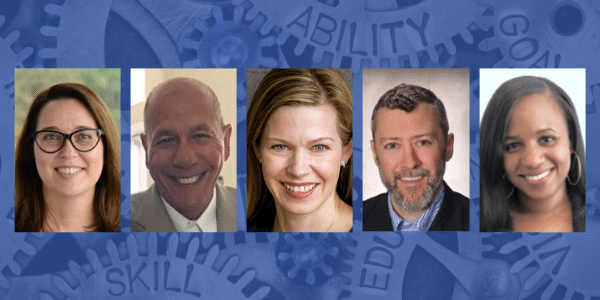
STEM Careers Panel for CUNY Postdoctoral Fellows
CUNY postdoctoral fellows are invited to join us for a career panel featuring four prominent professionals spanning industry to scientific funding.
Convening meetings, workshops, seminars, and public programs is a key part of the mission at the Advanced Science Research Center at the CUNY Graduate Center promoting collaboration between campus-based faculty, ASRC faculty, theorists, and experimentalists across New York City.
The ASRC offers event and meeting spaces that can accommodate up to 100 guests for your next conference, reception, meeting, workshop, film shoot, or private event.

CUNY postdoctoral fellows are invited to join us for a career panel featuring four prominent professionals spanning industry to scientific funding.
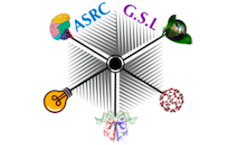
What type of information does the CP&PD offers to support GC students and postdocs in exploring and understanding career paths and achieving their professional goals in the industry, academic, non-profit, government, and for-profit sectors.
Radiative Cooling Under the Earth’s Glow
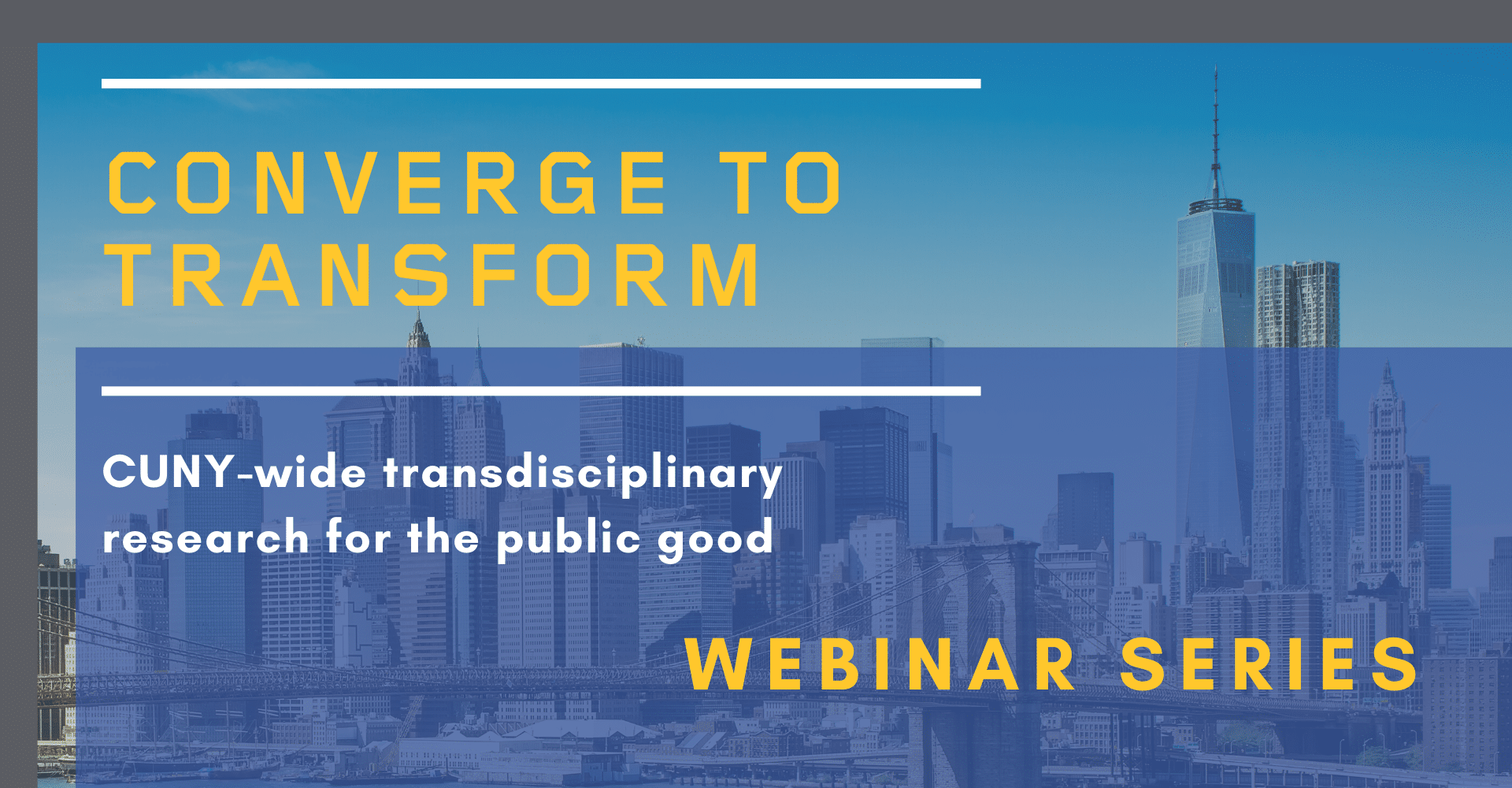
This event is part of Converge to Transform, a webinar series exploring CUNY-wide transdisciplinary research for the public good.

This event is part of Converge to Transform, a webinar series exploring CUNY-wide transdisciplinary research for the public good.
Designed Negative Feedback from Transiently formed Catalytic Nanostructures
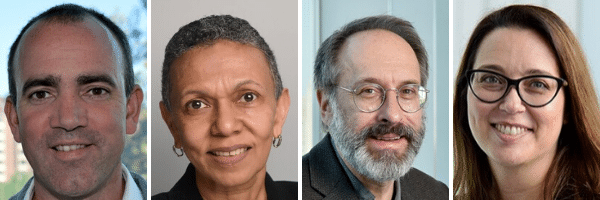
Please join the CUNY ASRC and CUNY Graduate School of Public Health on Tuesday, July 7 for the next session of the Thriving after Massive Global Disruption webinar series hosted
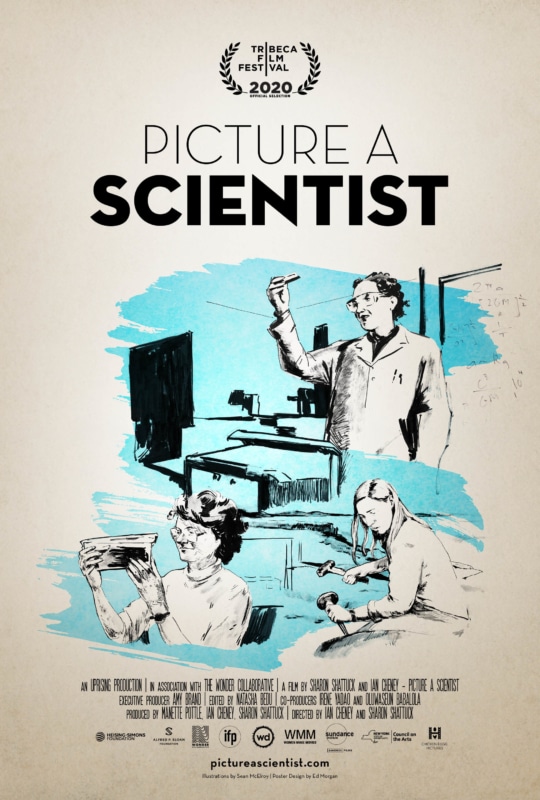
Join the CUNY ASRC and CUNY Office of Research for a virtual screening of PICTURE A SCIENTIST, a film that chronicles the groundswell of researchers who are writing a new
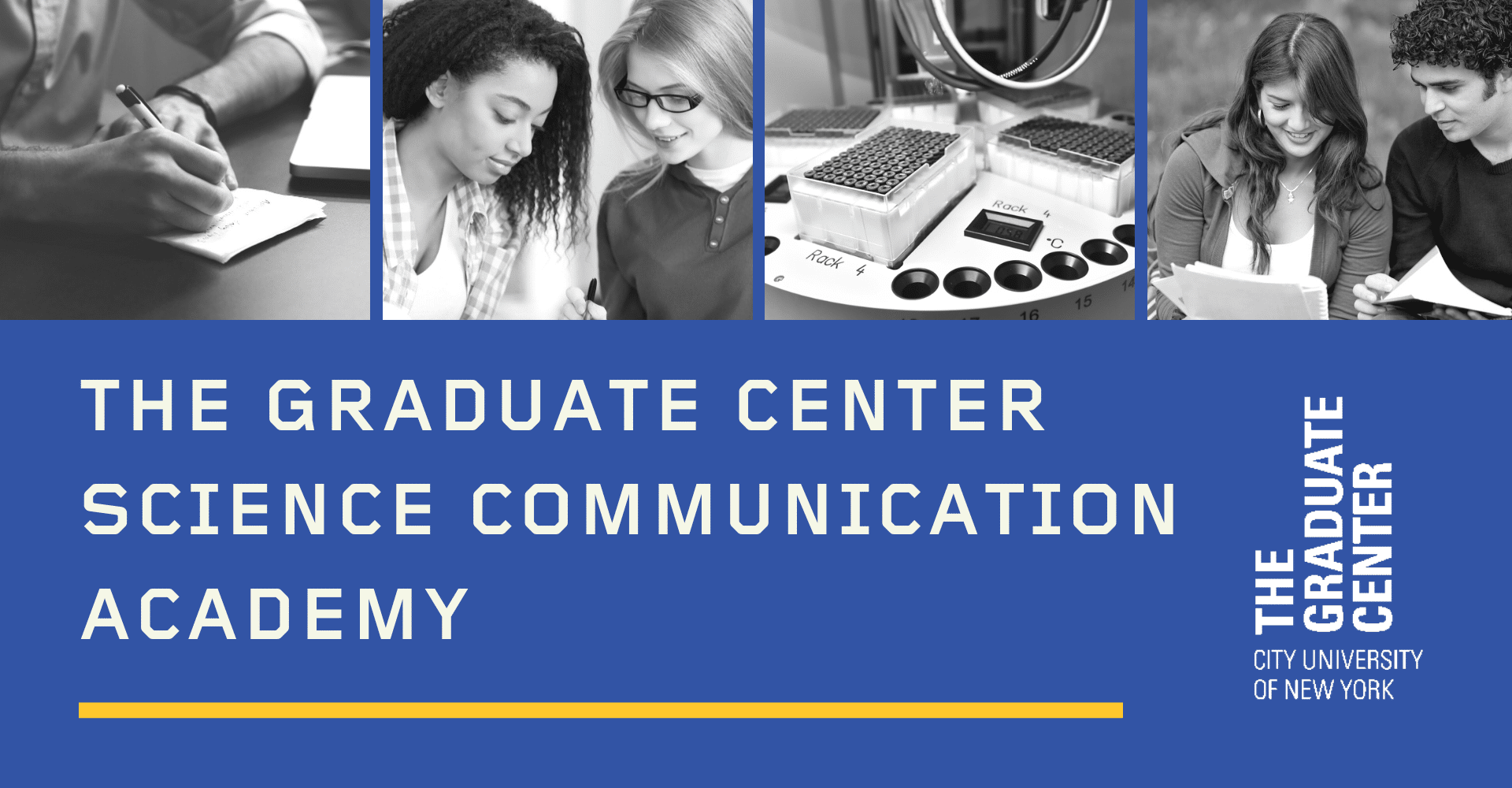
This event is part of Communicating Your Science, a series of talks and workshops aimed at helping STEM professionals publish and communicate their research.
Conformational disorder in regulation of biological catalysts
The 14th International Congress on Artificial Materials for Novel Wave Phenomena
Real-time quantification of gene expression with single-molecule precision in living cells
The Climate Research Exchange: Building the climate research NYC deserves
Lasso Peptide Genome Mining for New Enzyme Discovery

Join us on October 16, 2020 at 1 p.m. for a session with eLife Editor-In-Chief Michael Eisen and Nature Communications Editor-in-Chief Elisa De Ranieri, where we’ll discuss considerations for publishing with open-access journals.
In the Land of Rainbows and Unicorns: Forensic Science of a 76.4 million-year-old Tyrannosaur Mass Mortality
Probing and predicting the behavior of intrinsically disordered proteins by integrating NMR spectroscopy and computation
Dynamics and constraints of enzyme evolution
Use of groundwater-surface water modeling as an investigative tool in the urban critical zone
The Neutron Spin Echo Spectrometer at SNS and its Biophysics applications
Mechanisms of Lipid Bilayer Membrane Curvature Generation
Hydrologic sensors, real time data, and data visualizations
DNA damage in immunity and cancer

In this workshop we’ll explore what ‘engagement’ with youth and community members really means.
ecoWEIR Tech: a Nature-Based Approach for Integrated Water Management
Bacterial adaptation to shifting environments
Structural and functional studies of the temperature-sensitive TRP channel TRPV3
Development of a modified floristic quality index as a rapid habitat assessment method in the northern Everglades

This event is part of Communicating Your Science, a series of talks and workshops aimed at helping STEM professionals publish and communicate their research.
Illuminating the Biochemistry of Zinc and RNA in Living Cells
Characterizing membrane proteins in native membranes without tricks

This event is part of Communicating Your Science, a series of talks and workshops aimed at helping STEM professionals publish and communicate their research.
The intersection of the RIO kinases and PRMT5 in Ribosome Biogenesis
Opening Windows into the Cell: Bringing Structure to Cell Biology Using Cryo-electron Tomography
Lessons Learned and New Frontiers in PKA Signaling
Antibody discovery using LIBRA-seq
Please come and join us for a workshop co-hosted by Epigenetics Core and Living Imaging Core. We will discuss how to use Imaris to streamline your RNAscope analysis using images generated at our core!
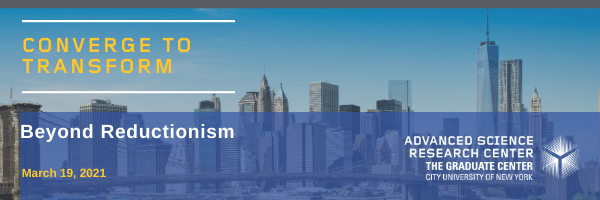
Join us on March 19th at 10 a.m. for the next event in our Building an Interdisciplinary Science Culture: Beyond Reductionism.

This event is part of Communicating Your Science, a series of talks and workshops aimed at helping STEM professionals publish and communicate their research.
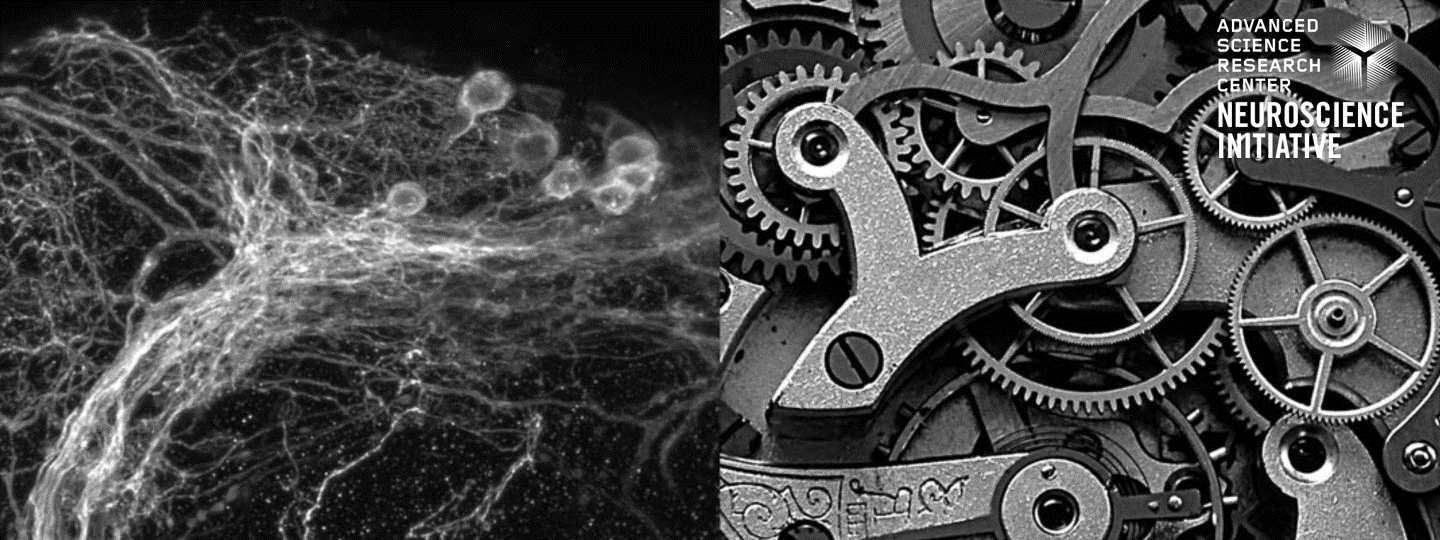
A Brain Awareness Week virtual event presented by the CUNY Advanced Science Research Center
Biophysical experiments and biomolecular simulations: A perfect match?
Coordination of cell division, chromosome segregation and capsule assembly in Streptococcus pneumoniae
Structure and inhibition mechanism of the human citrate transporter NaCT
How disordered is disorder? An atomistic level view of mixed folded proteins
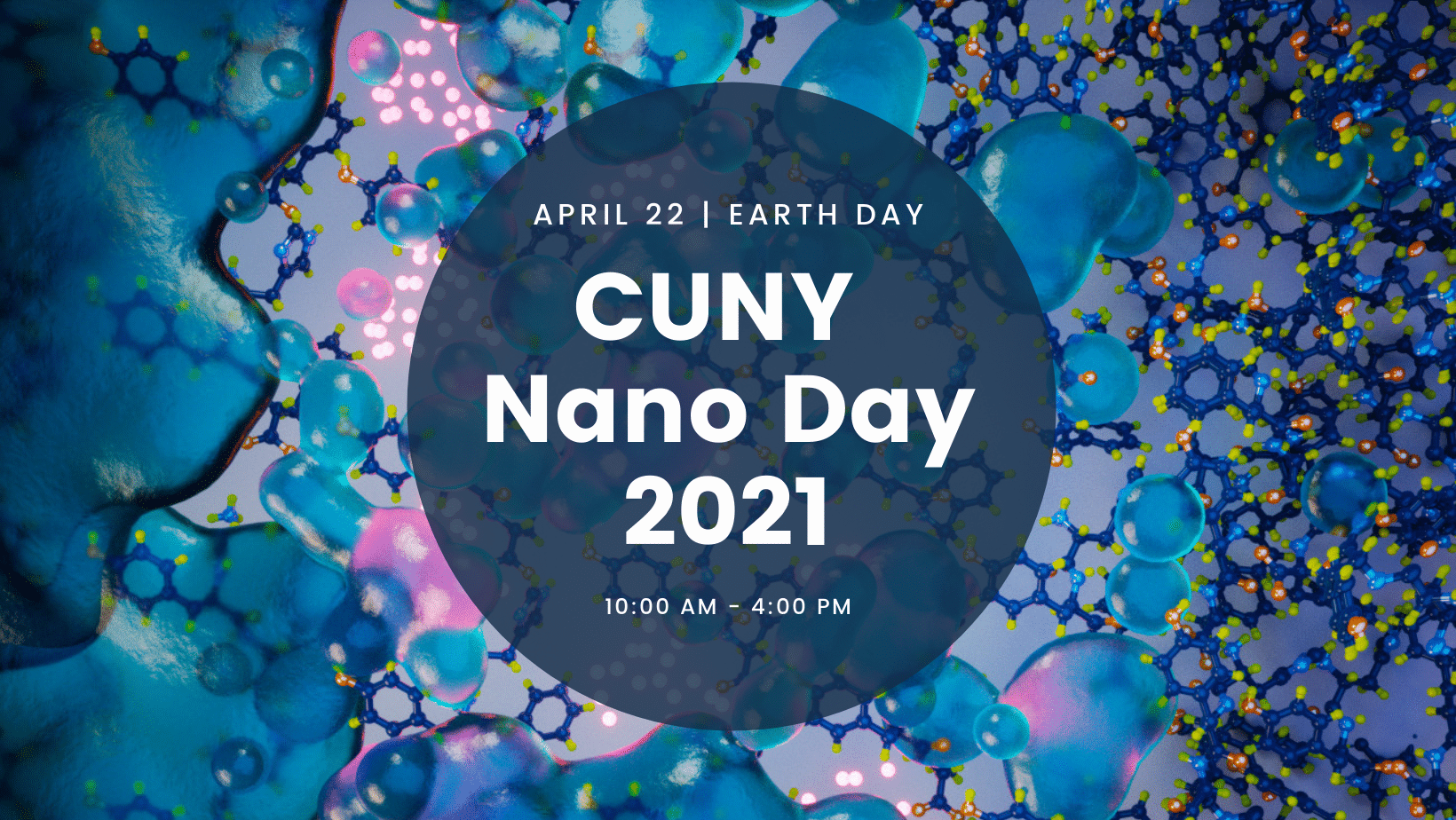
Please join the CUNY Nanoscience Community as we share our research stories and welcome new researchers into the community. The virtual symposium will feature interactive talks, a Science Art & Meme Competition, and a fun networking session.
Drivers of Heterogeneity in Alzheimer’s disease

This event is part of Communicating Your Science, a series of talks and workshops aimed at helping STEM professionals publish and communicate their research.
Mapping and Exploiting the Internal Wiring of Dynamic Protein Structures
Disordered protein complexes – a rethinking of molecular communication?
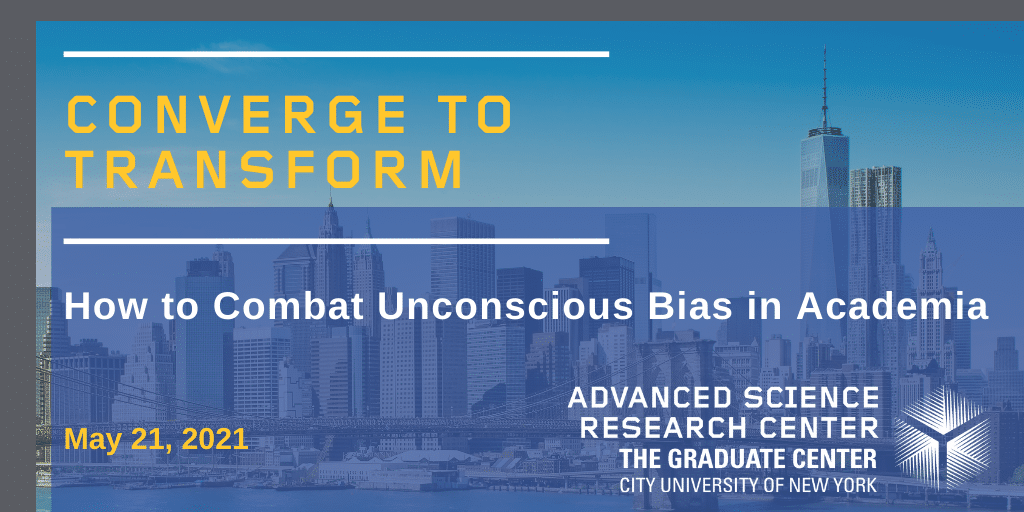
The recently published NSF Survey on Doctorate Recipients, 2019, highlights the lack of progress made in diversifying the STEM professoriate. Hispanic or Latinx scientists and engineers comprise 5% of PhDs
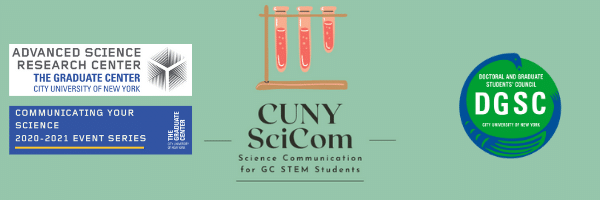
This event is organized and sponsored by the new student-led group, CUNYSciCom, with assistance from the GC Science Communications Academy and the Doctoral and Graduate Students' Council. The event will be held on June 18th, from 1-6 pm.
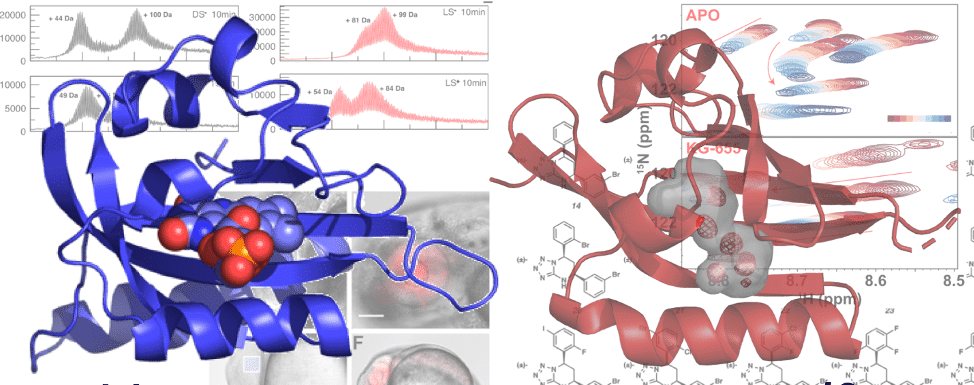
The fourth annual gathering of the CUNY biophysics community will feature talks from CUNY faculty, students, and postdocs.
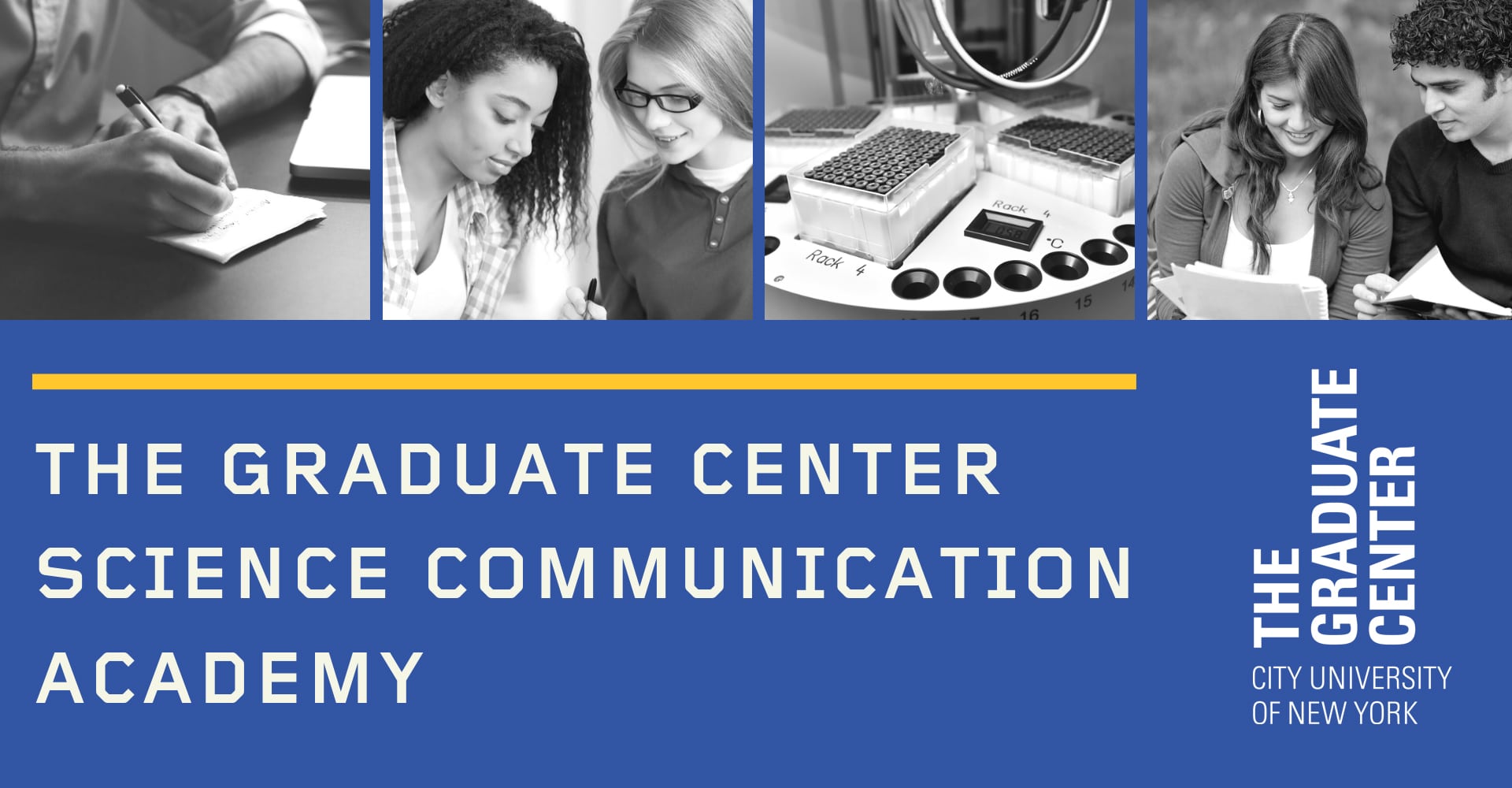
This event is part of Communicating Your Science, a series of talks and workshops aimed at helping STEM professionals publish and communicate their research.
Updates from the ASRC Environmental Sciences Initiative Research Groups
Understanding membrane protein complexes with a computational and experimental strategy

This event is part of Communicating Your Science, a series of talks and workshops aimed at helping STEM professionals publish and communicate their research.
Updates from the ASRC Environmental Sciences Initiative Research Groups
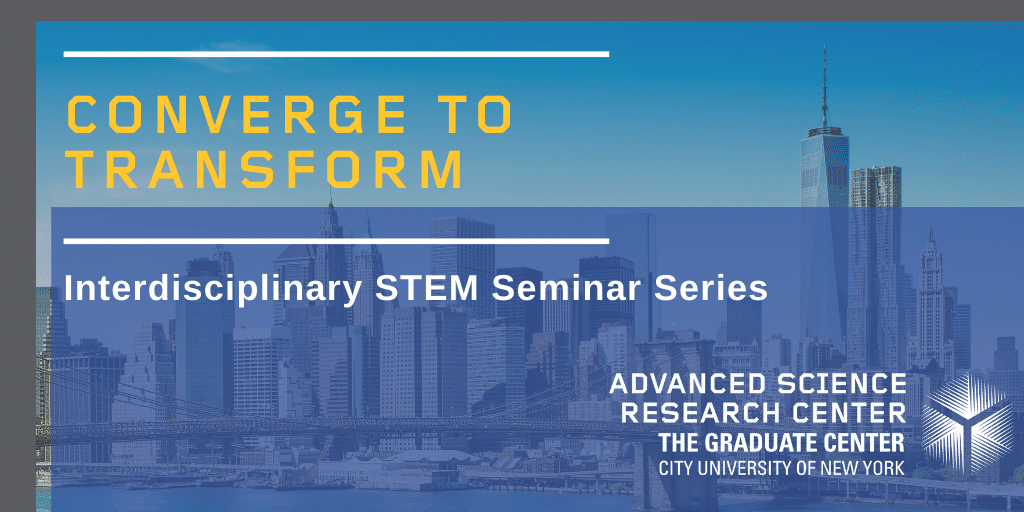
Talking to cells: technologies to image and control cellular function deep inside the body
Structural Investigations of Plant Biomass and Fungal Cell Walls by Solid-State NMR and Dynamic Nuclear Polarization
Structural Visualization of Chromatin Regulatory Complexes using Cryo-EM
Please register online here. Biomaterials at the Interface of Tissue Engineering & Cancer Immunology Matthew T. Wolf, Ph.D. Laboratory of Cancer Immunometabolism, National Cancer Institute DNA-Based Nanostructures for Chemical and Biological
Reconstituting cytoskeletal systems in artificial cells
To receive the Zoom link, please send your name and affiliation to mphilipp@gc.cuny.edu. Speaker: Nir London, Ph.D., The Alan and Laraine Fischer Career Development Chair, Department of Organic Chemistry, Weizmann
Updates from the ASRC Environmental Sciences Initiative Research Groups
Metabolic compartmentalization and adaptations in cancer
Nozomi Ando, Associate Professor, Dept of Chemistry & Chemical Biology, Cornell University

This event is part of Communicating Your Science, a series of talks and workshops aimed at helping STEM professionals publish and communicate their research.
Updates from the ASRC Environmental Sciences Initiative Research Groups
Protein self-assembly at the right time and place

Exposomics, Medicine and Public Health
Aneuploidy disrupts cellular physiology and metabolism
Updates from the ASRC Environmental Sciences Initiative Research Groups
Tau Joint Seminar CUNY Energy Institute
Correlation of membrane protein dynamics with function
Updates from the ASRC Environmental Sciences Initiative Research Groups
Inputs and outputs in protein tyrosine phosphatase signaling

This event is part of Communicating Your Science, a series of talks and workshops aimed at helping STEM professionals publish and communicate their research.
Evolutionary and mechanistic diversity of CRISPR RNA-guided transposases

Join us for a professional development and networking event open to all CUNY graduate students, postdoctoral fellows, and faculty interested in furthering their STEM academic research careers!
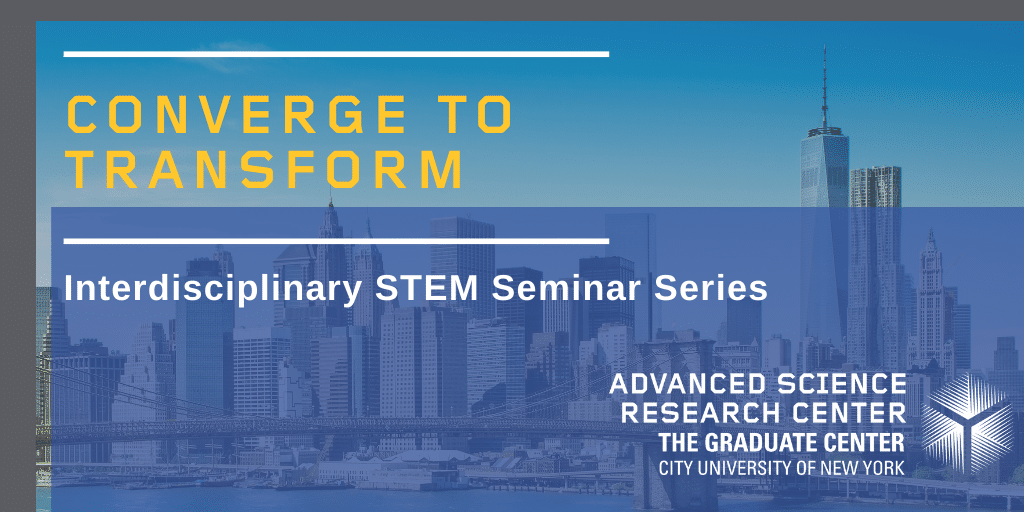
Join us for the next speaker in this series: Benjamin A Garcia, PhD, Raymond H. Wittcoff Distinguished Professor and Head of the Department of Biochemistry and Molecular Biophysics at the Washington University School of Medicine, in St. Louis.

This event is part of Communicating Your Science, a series of talks and workshops aimed at helping STEM professionals publish and communicate their research.
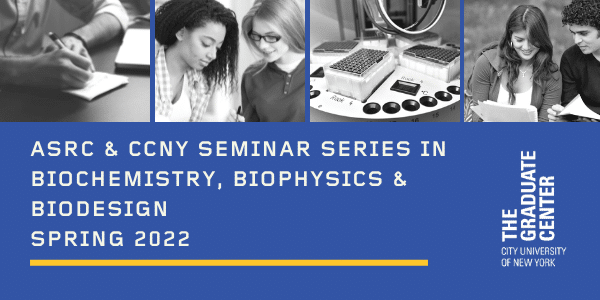
This event is part of the Biochemistry Seminar Series and will host Sjors Scheres, Research Leader at the MRC Laboratory of Molecular Biology at Cambridge University, Cambridge, UK, as the inaugural guest speaker.
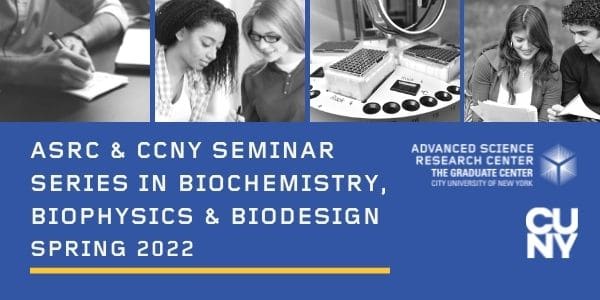
In this weekly seminar series, the Structural Biology Initiative will be hosting Professor Filip Van Petegem, Dept. of Biochemistry and Molecular Biology, University of British Columbia, Vancouver, Canada.

In this weekly seminar series, the Structural Biology Initiative will be hosting W. Seth Childers, Assistant Professor, Department of Chemistry, University of Pittsburgh, Pittsburgh, PA.

This event is part of Communicating Your Science, a series of talks and workshops aimed at helping STEM professionals publish and communicate their research.
Join the Photonics Initiative for a one-hour talk, in this on-going spring seminar series, from Kiyoul Yang, Stanford University.
Join the Photonics Initiative for a one-hour talk, in this on-going spring seminar series, from Qiushi Guo, California Institute of Technology and Yale University.
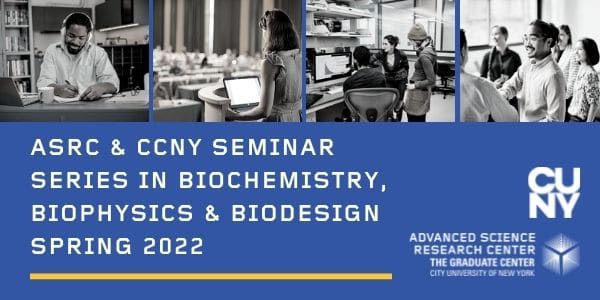
In this weekly seminar series, the Structural Biology Initiative will be hosting Shelley D. Minteer, Professor in the Dept. of Chemistry and Dept. of Materials Science and Engineering, University of Utah, Salt Lake City, UT.
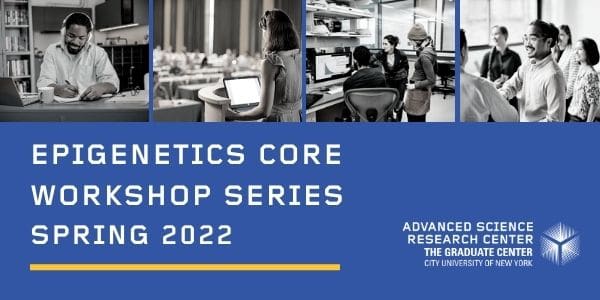
Please join the Neuroscience Initiative for an introductory seminar on the workflow of their newest instrument addition at the Epigenetics Core of the ASRC – 10 Chromium iX Controller.
Join the Photonics Initiative for a one-hour talk, in this on-going spring seminar series, from Kai Wang, Stanford University.

In this weekly seminar series, the Structural Biology Initiative will be hosting Nicholas K. Tonks, Professor of Cancer Research; Dep. Director, NCI-Cancer Center Cold Spring Harbor Laboratory, Cold Spring Harbor, NY.
Joshua Caldwell, PhD, Vanderbilt University

In this online event hosted by the Neuroscience Initiative, a speaker from Partek Inc. will be giving a talk titled: Start to Finish Multi-omics Data Analysis.
Join the Neuroscience Initiative as they partner with the Dana Foundation to celebrate Brain Awareness Week, March 14-20. As a part of the public events hosted by the Neuroscience Initiative, professor Orie Shafer and his lab members will answer questions on how circadian clocks work, how the environment acts on your brain to affect your clock and sleep, and the effects of shifting to daylight saving time.
Join the Photonics Initiative for a one-hour talk, in this on-going spring seminar series, from Michele Cotrufo, The City University of New York.
Join the Photonics Initiative for a one-hour seminar to discuss the four aspects of thermal radiation with Yuzhe Xiao, University of Wisconsin-Madison.

In this weekly seminar series, the Structural Biology Initiative will be hosting Professor Rama Ranganathan, from the Department of Biochemistry & Molecular Biology, Pritzker School of Molecular Engineering at The University of Chicago, Chicago, IL.
Join the Macaulay STEM Society, an organization that promotes research opportunities and allows students to explore their interests in STEM, at 11 a.m. on March 25 to explore research opportunities

This event is part of Communicating Your Science, a series of talks and workshops aimed at helping STEM professionals publish and communicate their research.